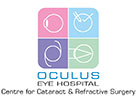- September 9, 2020
- Posted by: ohadmin
- Category: Eye

You have just had a COMPREHENSIVE EYE CHECK-UP. I examine the anterior parts of your eyes with a microscope called the slit lamp. We then dilate your pupil with eye drops so that I can see inside your eye and check your retina and optic nerve. You are not able to see clearly for about 5-6 hours because of this. We put some anesthetic eye drops and check your eye pressure. We record the details of all your eye problems until now, health problems like diabetes or hypertension, and whether you have any hereditary eye diseases in your family. Based on your age, the condition of your eye, and your history, I evaluate your risk of having certain eye problems which are common in the Indian population, and advice when you need your next check-up. Please see us at the recommended time and help us keep your eyes healthy for life.
I am particularly concerned about GLAUCOMA when I am doing your eye check-up. It is a silent disease in which the patient does not have any symptoms in the early stages. Increased eye pressure causes damage to the optic nerve. Regular eye pressure measurement with a dilated eye exam to evaluate the optic nerve will help detect the disease early. If you have a family history of Glaucoma I will advise some extra tests and more frequent check-ups.
If you have DIABETES, you are more likely to develop Cataract and Glaucoma. You also need to be aware of a condition called DIABETIC RETINOPATHY. Diabetes weakens the blood vessels in your body. In the eye, we can directly see the blood vessels in your retina and detect early signs of damage like small hemorrhages and exudates. This can worsen to a condition that collects proliferative diabetic retinopathy which is very difficult to treat and can lead to blindness. The wise thing to do is have regular check-ups so that this is detected in the early stages. Your physician would also like to know whether you have retinopathy as it gives him valuable information about the condition of your blood vessels.
If you have HYPERTENSION, just as you are more likely to have a heart attack or a stroke, you are more likely to have an arterial or venous occlusion in the eye and loss of vision. The patient often reports late with this condition as a loss of vision in one eye is often not detected amongst other concerns of old age. We advise a simple home vision check for everybody about the age of 60. On the first of every month, close one eye and look at a calendar or a clock in your house. Then close the other eye and check.
All the conditions I have described become more common with age. I would request you to go home and check with all your relation above the age of 50 whether they have had their regular eye check-up. You may help somebody save their sight.
Dr. Jagruti Desai ( M.S. Ophthalmology )

Oculus eye hospital
Tel. 9820094152, 9819983158